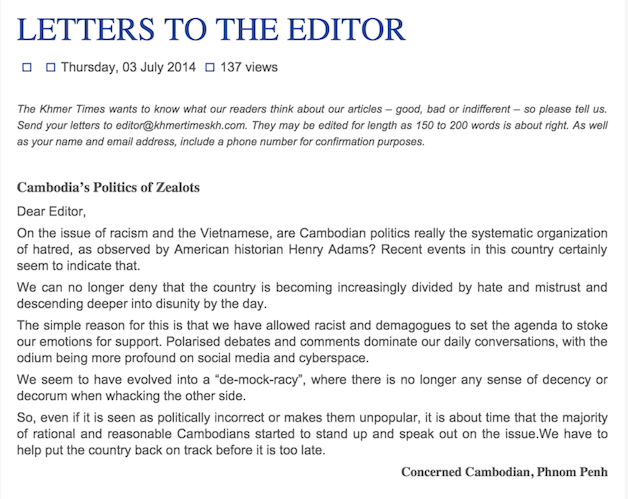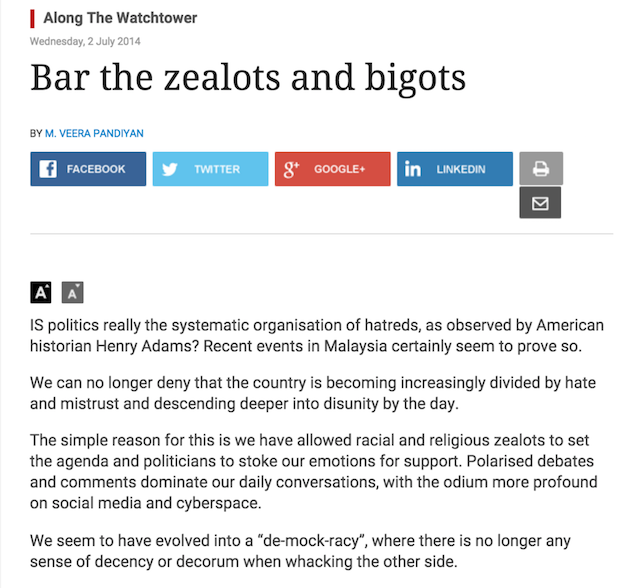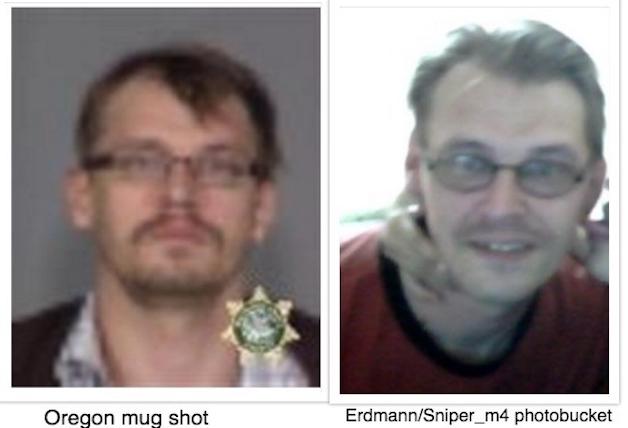There are few in the expat community here who haven’t heard a thing or two about Nick Mclernan, 40, and Martin Gates, 24: Singlet Senior and Singlet Junior, Beavis and Butthead, Dumb and Dumber — half the city seems to have an opinion. For those that don’t know of this seedy morality tale of things gone awry in the Kingdom of Wonder, it focuses on the plight of two British men, McLernan and Gates, and strikes at the very heart of just what duties and responsibilities an Embassy has towards its citizens abroad.
In the case of the British Embassy in Phnom Penh: these duties are strictly limited. So strict in fact, that Mclernan now lies in Calmette Hospital, disfigured, fighting for his life, and piling up medical bills which it seems no one will pay, though I doubt the Embassy much cares. In the end, it wasn’t vagrancy, drugs or anything remotely exotic that got him. He was hit by a truck.
Meanwhile, a dead-to-the-world Gates has stepped onto the tarmac at Heathrow, presumably to read that his mate is not in fact dead, as he first thought, but on life support, at a hospital just a stone’s throw away from the Embassy where he went so many times asking for help. Surely a mindfuck too many for such a young and already fucked-up mind.
All this would have been avoided if the British Embassy had the wherewithal to make a simple discretionary loan, way back in February. Yes, February. Things look impossible now. At what point does Mclernan’s life support get turned off? The way things stand, someone, somewhere is going to have to make that call, and the British Embassy’s decision making, indirectly or otherwise, will be seen by many to have been a major factor.
The details are murky, very murky indeed. Sometime in December 2014, Mclernan inherited the not-too-untidy sum of £32,691 (close to $50,000) on the sale of a house in Bournemouth left to him by his recently deceased mother. By late February he was living destitute on the streets of Phnom Penh, with his best mate, Gates, whom he had taken away to “get a break from it all, as a treat.” They claimed to have been the victim of theft.
They were soon knocking on the Embassy’s door asking for flights and emergency travel documents home. The Embassy said no. Again and again and again. The Embassy were given more than a little hassle for this, not least of all from myself. On March 18, in the first of several emails I wrote explaining why they immediately needed to be flown home: “They currently are both hungry, look skeletal and are covered in mosquito bites, and it’s quite likely they will end up starving to death or in Cambodian prison for vagrancy. If either of these things were to happen, and frankly it is looking likely, it is a legitimate response that the British Embassy would be accused of a lack of due care to its citizens.”’
Their response was a boilerplate one, but one that many feel is more than reasonable: “What we cannot do is pay bills or give money from public funds because we are not funded to do this and it is the obligation of individuals to take responsibility for themselves. It would also be unfair for those who take out insurance to subsidise those who do not, and individuals would not normally get these bills paid if they were in the UK.”
Of course, there are two positions here and they go to the core of what divides the ‘Left’ and ‘Right’: how much should the state help it citizens, particularly the poor, needy and, in this case, the none too smart? The arguments are well worn. Most people know where they stand, won’t budge, but love to argue it anyway. Lefties believe in common pooled resources to help people when they are in desperate need, even when brought about by their own misdeeds. The Embassy, for the moment at least (for we live in austere times), seemingly employs the approach of the Right: individuals taking responsibility for themselves. Fair enough.
When I initially met Gates and Mclernan, I was eager to help and went to the Embassy with them to find out what was going on. Regardless of the financials, they were treated less than respectfully. The Embassy’s Khmer staff clearly wanted them to go away (it was their fourth visit by now). They didn’t seem to be getting any sensible advice whatsoever. They were just asked to give cash for emergency travel documents (which was strange as at a later date, I went to Embassy to pay cash for Mclernan and was not allowed in).
After what I had seen, I was keen to help them and arranged to put a small story in a newspaper, the Khmer Times. I had been warned off the paper by many, particularly by journalists who said I should have nothing to do with them and that it was widely considered a joke newspaper. I took this with a pinch of salt, as journos slag off other publications as a matter of course. But on this one, they were right. My admittedly hastily written article was changed in bizarre fashion. My lead, which had been about the shoddy Embassy treatment I had witnessed, was replaced by something about how the government was cracking down on crime. The Embassy was barely mentioned. In less than 24 hours the Khmer Times had pulled the story, offering me no explanations despite my repeatedly asking them, fueling suspicion amongst an already sceptical audience that the story was somehow hoaxed.
Nevertheless the article did the rounds on the local internet and I came in for a hammering of sorts. Some of it was mild: I had been duped and was naive. Some of it went off into wild flights of fancy and was quite entertaining – I had faked the whole story to promote a film about two dumb expats I was showing at the cinemas (an unfortunate coincidence), even that I was staging the whole thing to shoot material for a new movie.
The UK Daily Mail mentioned the stir the story had caused, so I showed them an updated draft of the story. They wanted more info. Of course they did – that’s what this story needed all along. Wary of how the Mail would portray them I declined, saying that I would try instead to crowdfund their flights home. This too went badly, some people were supportive but others called me a fraud and a scammer, even suggesting I was a sock-puppet for Gates or Mclernan. Not believing their story was something I could understand (I had reservations myself), but what caught me off guard was the sheer number of people that thought these guys were not deserving of help at all. Surely it was clear to see that it would end badly if they weren’t flown out. Even some of my friends were giving me shit. One new, but much loved friend shouted at me: “You’re a cunt. You’re a cunt. No-one gives a fuck about those two junkies. What are you trying to do? You’re nothing.”
And in many ways he was right, not many people did care (and I can be a bit of a cunt).
My biggest surprise was not that other people didn’t want to help and/or didn’t believe them, but that people were so hostile to the fact that I wanted to help at all. People seemed actively hostile to the fact I wanted to help, idiots or not. Nevertheless the furore helped a little, and Gates and Mclernan were received kindly by many people on the street who wanted to help them out.
Liberal hippy pinkos and Daily Mail lovers aside, the real meat and drink was to be had over just how Singlet Senior and Son had lost all their money. They said there was a theft at a hostel in Sihanoukville where they were staying on February 21, just a few days before they were set to leave, and they lost virtually everything they had – smartphones, $3,000 cash, a Macbook – and that on contacting his bank Mclernan’s bank up to £15,000 had been removed from his bank, through frequent withdrawals from ATMs as well as online payments. At this point Mclernan did not freeze his account, saying it would effectively deny him access to his only remaining money. In response to this the public said, and I paraphrase: bollocks, utter bollocks.
Holes were quickly found in their story. Things didn’t add up, and too many questions were left unanswered: Just how can you get defrauded for £15,000 off a debit card in the space of a few weeks? Why was there no record of the robbery? Why didn’t they go to the police? Why did they leave a $100 tab at the last place there is record of them staying? Essentially, they were seen as liars and to many at least that made them undeserving. For some it was far worse than this: they were junkies, scammers, methheads, chavs; they had been seen ‘drooling’ after leaving public toilets; they even had criminal records. Morbid humour set in, some saying they deserved to die or they should have syringes stabbed in their eyes: they got what they deserved.
And there seemed to be a fair bit of classism involved too. I couldn’t help thinking that if these were nice middle-class chaps the Embassy would have flown them home long ago, but therein lay the paradox – those guys would have had the money wired in minutes. Gates and Mclernan were having no such luck. They were relying on the kindness of strangers to stay alive.
It proved impossible to work out exactly where the money went. Did Gates and Mclernan take drugs? Certainly. Were they drug addicts? Possibly. Fuck-ups? Undoubtedly. I still think they were robbed or scammed at some level. How and for what amount, I do not know. If it was due to their own stupidity, I do not know, but I just can’t see them blowing every single last piece of coin, not to mention losing all their clothes. I think they were easy targets and got conned somehow. A lot of people think I’m naïve on this, and they have good reason to: the guys were an infuriating pair of idiots, unreliable, disorganized, ill-informed, losing and forgetting things constantly. They actually did remind of me Beavis and Butthead.
I spent a fair bit of time with Martin and Nick, helped them out where I could, took the piss out of them when thing got a bit glum, which was often. They always seemed like ok lads to me, definitely not the sharpest tools, some of the mental illnesses to which they claimed were all too evident. They wrote me a kind thank you letter when I had put them up for the night. But all-in-all, their character is irrelevant. It was clear from the outset that if they were not flown home they were going to end up in a very bad situation indeed.
The British Embassy’s own guidelines state: “A discretionary loan from public funds to help you return to the UK may only be considered in very exceptional circumstances and only if you have used up all other methods of getting funds.” This is the part where the British Embassy failed to do its job. Why were they continually refused this emergency loan? If they had been given it, they would both be back in the UK, with their passports confiscated. Why, in six weeks of constantly knocking on the Embassy’s door, were they not repatriated? Whilst the machinations of bureaucracies are slow, in “exceptional circumstances” you need to be able to be flexible enough to be able to act, show some dynamism, particularly in Cambodia: this nation of deathpats.
On these terms, the Embassy simply failed to deliver. Khmer440 told the Embassy yesterday that it would be running a story about Nick and Martin. They replied this morning: “The British Embassy can confirm that a British national has been hospitalised in Phnom Penh. We are providing consular assistance.” They then directed us to a website link of a pamphlet entitled FCO Brits Abroad 2014.
Currently, Nick is living on a life support machine and someone might well have to take the decision to turn off the machine. The situation should have never ever have got this far.

















































